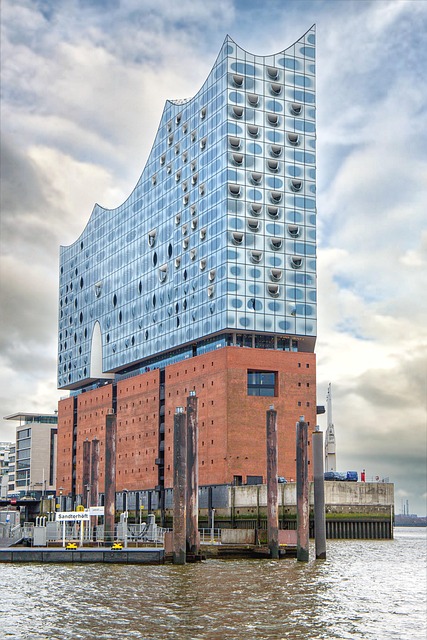Florence's rich maritime history has driven its cultural and intellectual growth since ancient times. Educational institutions, funded by merchant guilds, emphasized classical studies and practical skills, fostering innovation. The Renaissance brought Humanism and an influx of scholars, solidifying Florence as a European education hub. Its strategic port location fueled vibrant cultural exchanges, enriching academic excellence reflected in renowned alumni.
Florence, a city steeped in artistic and intellectual heritage, boasts a rich maritime history that intertwined with its educational evolution. From humble beginnings in grammar schools attached to cathedrals, Florence’s educational landscape blossomed under the influence of merchant guilds, embracing Renaissance Humanism. This period witnessed a transformative shift, shaping academic excellence and fostering renowned scholars. The city’s role as a bustling hub for maritime trade played a pivotal part in disseminating knowledge across Europe, leaving an indelible mark on Florence’s academic legacy.
- Florence's Educational Roots: From Grammar Schools to Cathedrals
- The Influence of Merchant Guilds on Early Learning
- Renaissance Humanism and its Impact on Education
- Maritime Trade's Role in Spreading Knowledge
- Famous Alumni: Navigating Florence's Academic Legacy
Florence's Educational Roots: From Grammar Schools to Cathedrals
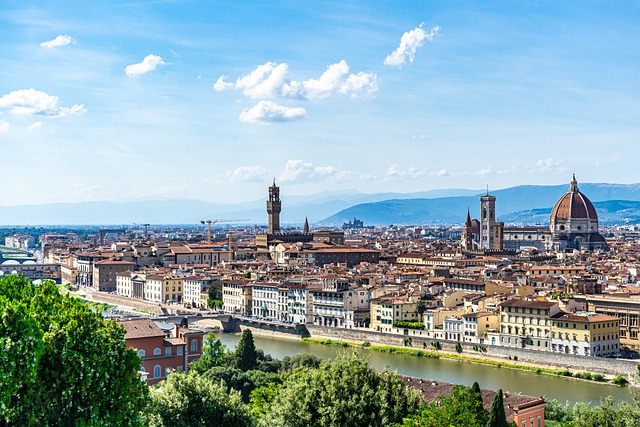
Florence, with its rich maritime history, has long been a hub of cultural and intellectual exchange. This legacy extends back to its early educational institutions, which laid the foundation for the city’s future academic prominence. The roots of Florence’s educational system can be traced back to medieval times when grammar schools, known as “scuole,” began sprouting up across the city. These schools were often attached to churches or cathedrals, reflecting the close interplay between education and religion in Renaissance Italy.
The curriculum of these early institutions focused on classical studies, with a strong emphasis on Latin and Greek literature, philosophy, and history. Students would gather in these sacred spaces, not only to learn but also to engage in lively debates and discussions that sparked intellectual curiosity and set the stage for Florence’s later emergence as a center for humanism and academic excellence.
The Influence of Merchant Guilds on Early Learning
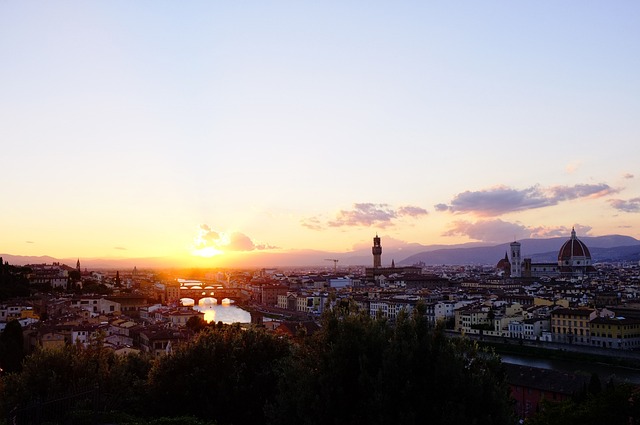
In the heart of Florence’s rich maritime history, merchant guilds played a pivotal role in shaping the city’s early educational institutions. These powerful trade associations, which flourished during the Renaissance period, recognized the importance of education as a means to ensure their economic dominance and social status. As such, they actively contributed to the establishment and funding of schools, libraries, and workshops that catered to various skills and disciplines.
The influence of merchant guilds can be seen in the curriculum of these educational institutions, which often reflected the practical needs of their members. Subjects like commerce, mathematics, and navigation were given prominence, reflecting Florence’s status as a major trading hub. Moreover, these guilds fostered an environment that encouraged innovation and skill development, ultimately contributing to Florence’s reputation as a cultural and intellectual center during its golden age.
Renaissance Humanism and its Impact on Education
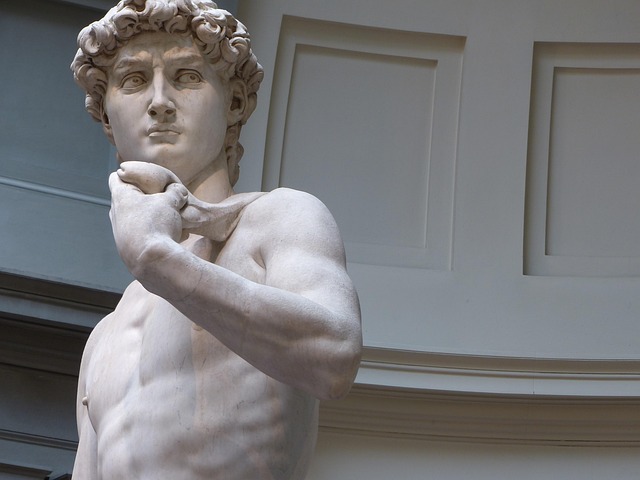
During the Renaissance, Florence experienced a cultural awakening that significantly shaped its educational institutions. The city’s rich maritime history fostered an environment of intellectual curiosity and trade, contributing to the rise of Renaissance Humanism—a philosophical and educational movement centered on human potential, rationality, and secular learning. This shift from medieval scholasticism emphasized individual development, critical thinking, and a wide range of academic disciplines, including literature, history, art, and science.
Florence’s educational institutions, such as the University of Florence (founded in 1321), became hubs for Renaissance Humanism, attracting scholars and students from across Europe. The study of classical texts and the promotion of humanistic values encouraged a spirit of inquiry and innovation that would go on to shape art, architecture, and scientific discoveries during this period. This intellectual revolution not only influenced the city’s cultural output but also left an indelible mark on European education, ensuring Florence its place as a true cradle of Renaissance learning.
Maritime Trade's Role in Spreading Knowledge
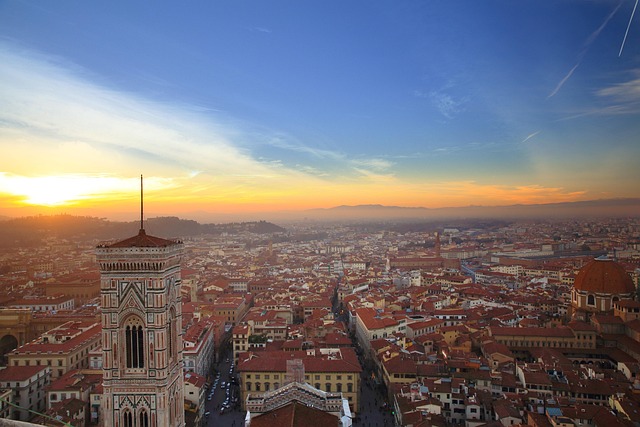
Florence, a city steeped in rich maritime history, saw its educational institutions flourish alongside its thriving ports. The bustling trade routes not only brought goods but also ideas and knowledge from across the Mediterranean and beyond. Merchants, sailors, and travelers shared stories of distant lands, exposing Florence’s early learners to diverse cultures and scientific advancements. This vibrant exchange fueled curiosity and inspired innovative thinking among the city’s students.
The port city’s strategic location enabled it to become a hub for intellectual growth. With ships arriving daily, Florence’s educational institutions benefited from an influx of new information. Maritime trade facilitated the spread of philosophical texts, mathematical discoveries, and artistic techniques, enriching the academic landscape and contributing to the city’s reputation as a center of learning and culture.
Famous Alumni: Navigating Florence's Academic Legacy
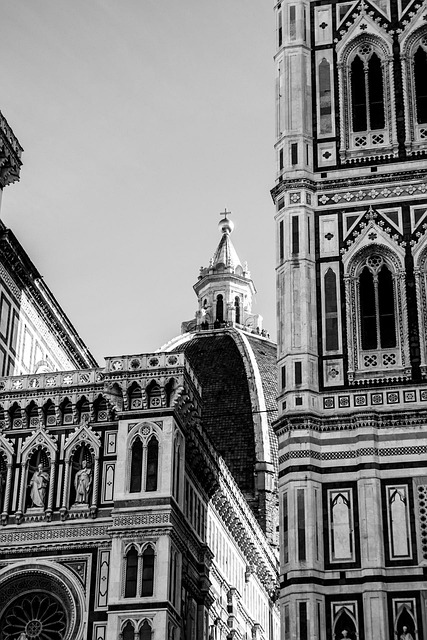
Florence, renowned for its rich maritime history and cultural heritage, has also been a hub for educational excellence since ancient times. The city’s academic legacy is evident in its many notable alumni who have left their mark on various fields. From literature and art to science and politics, Florentine scholars have shaped the intellectual landscape both locally and globally.
Many of these individuals are direct descendants of Florence’s vibrant Renaissance culture, reflecting the city’s enduring commitment to fostering creativity and knowledge. Their achievements serve as a testament to the robust educational institutions that flourished in the heart of this historic metropolis, preparing students for futures at sea and on land alike, mirroring Florence’s maritime history in their own voyages of discovery and contribution.
